Are you or anyone from your family about to pursue a heart ablation shortly?
And,
Are you keen to know how serious is the heart ablation surgery your doctor seeks to perform?
No wonder a surgery, no matter for what reason it lay undertaken, is a serious procedure and requires you to follow whatever your surgeons or doctors say!
But, given that, I must also say, this particular procedure is typically minimally-invasive and, therefore, not as complicated as you think it to be! Yet again, sometimes, this surgical process may also take place in the form of open heart surgery, depending on your condition and what your surgeons decide.
Like any other surgery, a heart ablation comes with benefits and risks. Your doctor shall take each of the factors into account before suggesting the type of heart ablation for your particular case.
Make sure you do not go by the myths in the market, and only listen to what your doctors say!
CContents
What Is A Heart Ablation Surgery?
Also called cardiac ablation, this surgical process involves energy usage to destroy the abnormal heart tissues causing arrhythmia, atrial fibrillation, or ventricular tachycardia. In other words, a heart ablation works to eliminate the unusual electrical signals that pass through your heart and lead to your uneven heartbeat.
Doctors typically recommend this treatment when medications or cardioversion (the medical treatment utilizing low-energy shocks to bring back regular heart rhythms) fails to work.
A heart ablation surgery takes around three to six hours, but sometimes, depending on the complexity of your case, it may require more time. The surgery most likely includes local or general anesthesia, which the medical caregivers shall administer intravenously.
While one heart ablation type may require your doctor to cut from your chest center and separate the breastbone to insert the heart-lung bypass implant, the other may entail electrodes to destroy the unusual tissue and restore your regular heartbeat.
Types of Heart Ablation: Catheter & Surgical!
Yes. There exist two categorical cardiac or heart ablation your doctor may choose from! They are –
Catheter Ablation
The catheter ablation technique is the most common type of heart ablation that uses heat or cold energy to terminate the faulty electrical pathway in your heart. It is a minimally-invasive process where a thin and flexible tube-like machine called a catheter is put into the blood vessels through your neck or leg and moved to your heart. Once this catheter reaches the heart tissues causing the irregular heart rhythm, it destroys the cells underlying therein.
Catheter ablation lay classified into two types, namely –
- Radiofrequency Ablation, where heat radiation lies used to make circular scars around every vein or a group of veins, thereby restoring the regular heartbeat, and
- Cryoablation, where a balloon-tipped with freezing material gets sent to the targeted area by a single catheter to cause the scar.
Surgical Ablation
The surgical ablation technique, on the other hand, indulges in cutting into your chest to topple the targeted tissues. This particular process requires a longer hospital stay and may even take around three to six months to secure a complete recovery. Doctors usually prefer this method when a catheter ablation does not work, and it is a more risky method, as compared to the above, of course!
Surgical heart ablation lay classified into three main types, and they are –
- Open-Heart Maze, which doctors conduct while fixing another problem like replacing the heart valve or bypassing it! During this surgery, the doctors cut the upper portion of your heart and stitch them further.
- Mimi Maze, where your doctors perform less invasive surgery, making a few tiny cuts in your ribs and using tiny robots or cameras for guidance!
- Convergent Ablation, where the mini maze process lay combined with the catheter technique. Herein, doctors make small cuts under your breastbone to apply the radiofrequency ablation on the outside of the heart.
How Do Doctors Decide Which Heart Ablation Surgery to Perform?
Doctors decide the type of heart ablation depending on the –
- The reason for your irregular heartbeat,
- Whether you have any other severe symptoms and what they are,
- The probability for you to experience heart disease after the ablation,
- Which part of the heart to target, and
- Whether your first ablation has failed and it is the second one you are up-taking.
What Are The Benefits of Heart Ablation Surgery?
Perhaps, advancement in the field of medical science, and the advent of treatment courses like heart ablation, happen for a purpose.
And,
The purpose herein is to benefit patients with irregular heartbeat, so they can fetch long-term relief from this condition and experience a better quality of life.
A heart ablation surgery can help eliminate the odds of developing blood clots from such a condition. It can reduce your chance of having a stroke or heart failure due to abnormal heart rhythms.
According to studies, the success rate of heart ablation surgery with only one procedure is about 70 to 75% among patients having paroxysmal atrial fibrillation. Whereas the overall success rate, including the ablation, conducted a second time for similar patients, rests at 85 to 90%.
What Risks Does A Heart Ablation Surgery Have?
When it comes to the question of how serious is a heart ablation surgery irrespective of the method, the risk factors are what you must consider, as your doctor does! They are as follows!
- Bleeding or infection in the area the catheter goes in,
- Blood clots in the lungs, and sometimes, even your legs,
- Stroke or heart attack during or post-surgery,
- Damages to the valves,
- Damage to the blood vessels due to the catheter scraping them,
- Kidney damage from the use of dye,
- Narrowed veins between your heart and lungs,
- Another episode of arrhythmia from the damage to the electrical system of your heart, and
- Sometimes even death.
Myth About Heart Ablation Surgery
While you can already understand that heart ablation surgery is a serious process; and quite risky, you must certainly not pay heed to the myth revolving around this advanced treatment method.
Often you can get to hear that a heart ablation surgery can cure yours completely.
Sorry, but they can’t!
These surgeries can also help ease your symptoms for a long span. In fact, within the first three months of your surgery, the chances of another arrhythmic episode to occur still remain.
Final Thoughts:
Thus, the bottom line, you must discuss the surgical procedure in detail with your doctor before you or your close ones actually pursue it. You must learn about the medications and preparations too!
But, there again, you do not need to panic. Your doctors are the ones who shall do all within their limits to cure the patients and ensure a better life. You must have faith in them!
Now, it’s time for me to sign off, and so I would. I hope this little blog piece on how serious a heart ablation surgery is can serve your purpose. If you have more doubts about this process, you can drop us a message at Contact Us – HealthFinder.


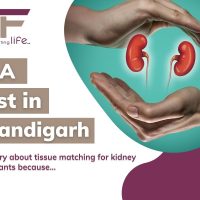
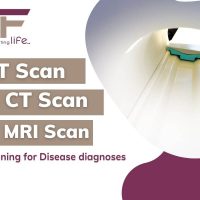

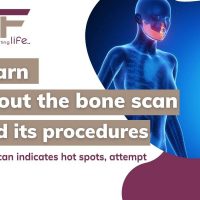
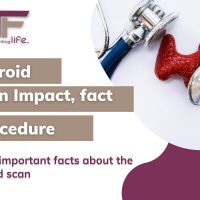

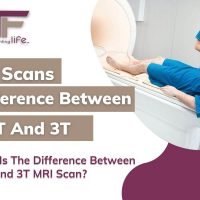

Comments